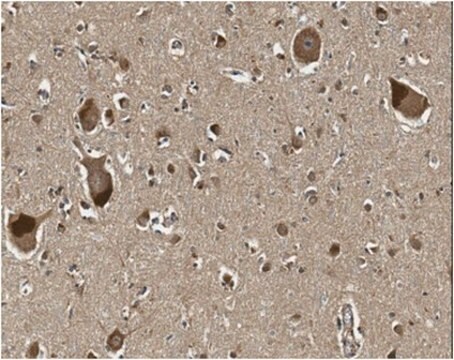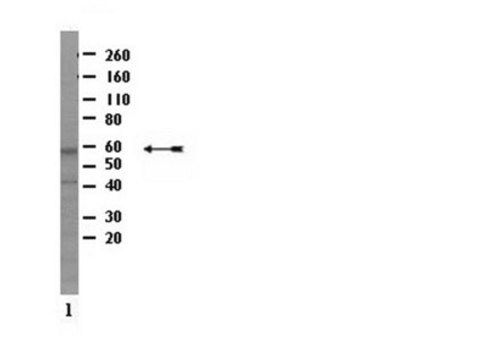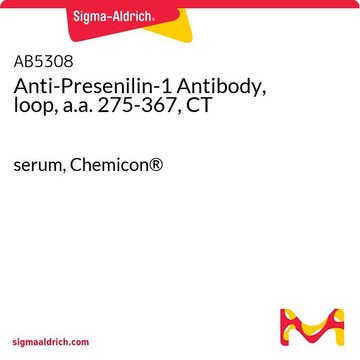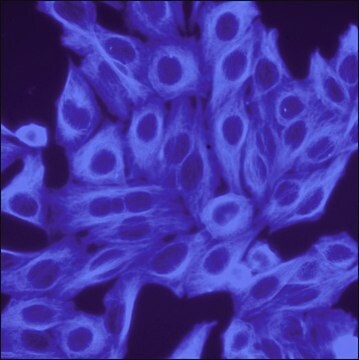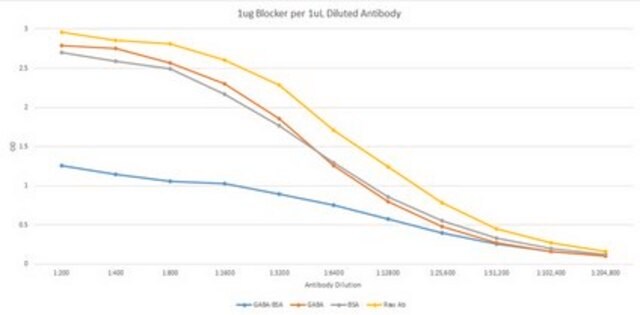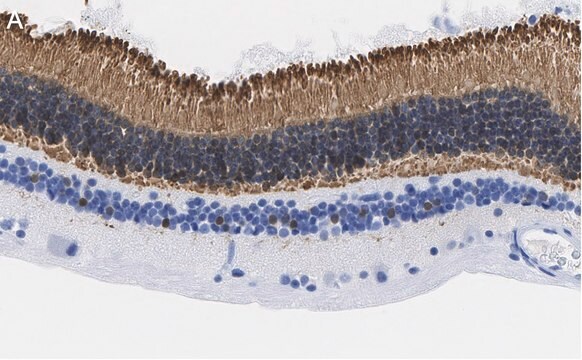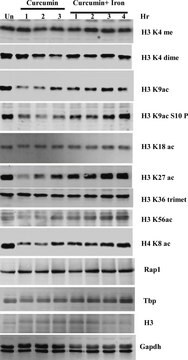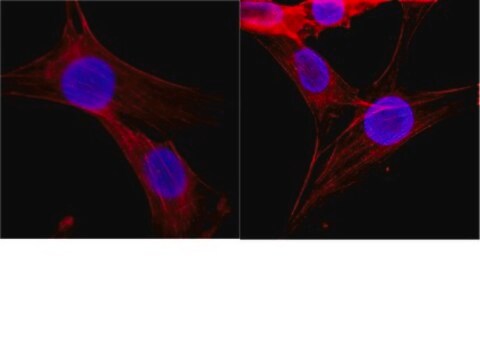ABE1321
Anti-MBD6
from rabbit, purified by affinity chromatography
Sinonimo/i:
Methyl-CpG-binding domain protein 6, Methyl-CpG-binding protein MBD6
About This Item
Prodotti consigliati
Origine biologica
rabbit
Livello qualitativo
Forma dell’anticorpo
affinity isolated antibody
Tipo di anticorpo
primary antibodies
Clone
polyclonal
Purificato mediante
affinity chromatography
Reattività contro le specie
mouse, human
Confezionamento
antibody small pack of 25 μg
tecniche
immunocytochemistry: suitable
immunohistochemistry: suitable (paraffin)
western blot: suitable
N° accesso NCBI
N° accesso UniProt
modifica post-traduzionali bersaglio
unmodified
Informazioni sul gene
human ... MBD6(114785)
Descrizione generale
Specificità
Immunogeno
Applicazioni
Immunohistochemistry Analysis: A 1:250 dilution from a representative lot detected MBD6 in human skin and human stomach tissue sections.
Epigenetics & Nuclear Function
Qualità
Western Blotting Analysis: 1 µg/mL of this antibody detected MBD6 in SH-SY5Y cell lysate.
Descrizione del bersaglio
Stato fisico
Stoccaggio e stabilità
Altre note
Esclusione di responsabilità
Non trovi il prodotto giusto?
Prova il nostro Motore di ricerca dei prodotti.
Certificati d'analisi (COA)
Cerca il Certificati d'analisi (COA) digitando il numero di lotto/batch corrispondente. I numeri di lotto o di batch sono stampati sull'etichetta dei prodotti dopo la parola ‘Lotto’ o ‘Batch’.
Possiedi già questo prodotto?
I documenti relativi ai prodotti acquistati recentemente sono disponibili nell’Archivio dei documenti.
Il team dei nostri ricercatori vanta grande esperienza in tutte le aree della ricerca quali Life Science, scienza dei materiali, sintesi chimica, cromatografia, discipline analitiche, ecc..
Contatta l'Assistenza Tecnica.